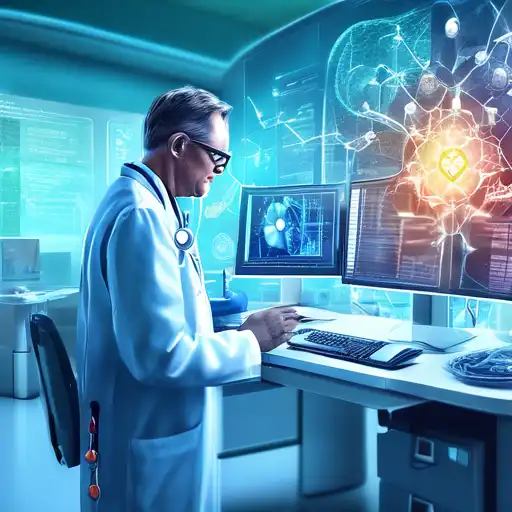The Transformative Impact of Data Science on Healthcare
In recent years, data science has emerged as a revolutionary force in healthcare, offering unprecedented opportunities to improve patient outcomes, streamline operations, and reduce costs. By harnessing the power of big data, artificial intelligence (AI), and machine learning, healthcare providers can now predict outbreaks, personalize treatments, and enhance diagnostic accuracy like never before.
Personalized Medicine
One of the most significant contributions of data science to healthcare is the advent of personalized medicine. By analyzing vast datasets, including genetic information, data scientists can identify patterns and predict individual responses to treatments. This approach not only improves efficacy but also minimizes adverse effects, marking a shift from one-size-fits-all to tailored healthcare solutions.
Predictive Analytics for Preventive Care
Predictive analytics, a cornerstone of data science, enables healthcare providers to identify at-risk patients and intervene before conditions worsen. For example, by analyzing historical and real-time data, algorithms can predict hospital readmissions or the likelihood of chronic diseases, allowing for timely preventive measures.
Enhancing Diagnostic Accuracy
Data science is also revolutionizing diagnostics. Machine learning algorithms, trained on thousands of medical images, can detect anomalies such as tumors or fractures with accuracy surpassing human experts in some cases. This not only speeds up the diagnostic process but also reduces the chances of human error.
Operational Efficiency
Beyond patient care, data science is optimizing healthcare operations. From managing patient flow to predicting equipment failures, data-driven insights help hospitals operate more efficiently, reducing wait times and saving costs. For instance, predictive models can forecast patient admissions, enabling better staff allocation.
Challenges and Ethical Considerations
Despite its potential, the integration of data science into healthcare is not without challenges. Issues such as data privacy, security, and ethical use of AI must be addressed to fully realize its benefits. Ensuring transparency and building trust among patients and providers is crucial for the sustainable adoption of these technologies.
In conclusion, data science is transforming healthcare by enabling personalized medicine, improving diagnostic accuracy, and enhancing operational efficiency. As the field continues to evolve, it promises to further revolutionize healthcare delivery, making it more predictive, preventive, and personalized. The journey is just beginning, and the possibilities are limitless.
For more insights into how technology is shaping the future of healthcare, explore our articles on AI in Healthcare and Machine Learning in Medicine.
